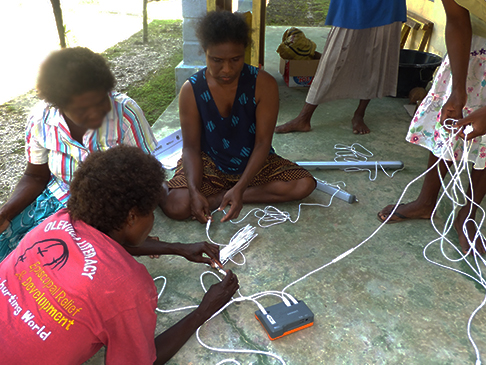- NGO: Anglican Overseas Aid
- Sector: Innovation
- Country: Solomon Islands
Less than 20% of Solomon Islanders in rural areas have access to electricity. Instead many rural households rely on kerosene lamps for light.
Kerosene lamps give off fumes that are bad for health, contribute to pollution and are linked to the risk of house fires. Buying kerosene also eats into the limited income of poor families, where women are often the income earners.
Under the Bringing Light to Rural Communities Project, some 400 families in the Solomon Islands will benefit from solar lighting, community members are being trained in solar maintenance and in running solar businesses. Solar lighting is also being provided to schools.
Women have reported that solar lights gave better quality light that they could use for market preparation as well as reducing stress by lifting the ever-present worry of raising money to keep family homes lit at night.
One member of the Mothers' Union of the Anglican Church of Melanesia, reflected on how the solar lights had changed her life. "Solar helps the family a lot. When I am preparing for market at night I no longer need a torch," she said.
"When I am baking buns the small lamp gives light straight inside the drum so I can see if they are ready. Also it has reduced the cost of running a hurricane lamp, and I don't need to buy a torch or batteries. It gives good light.
"As a mother I used to worry that I would run out of cash and not have money to pay for kerosene for light in the evening. Now I know the solar light will be there even if it has been rainy; the light still shines bright."
The solar component of the project is also a lead into working with women's groups on other issues that are important for them such as building skills in running small businesses and addressing gender based violence.

